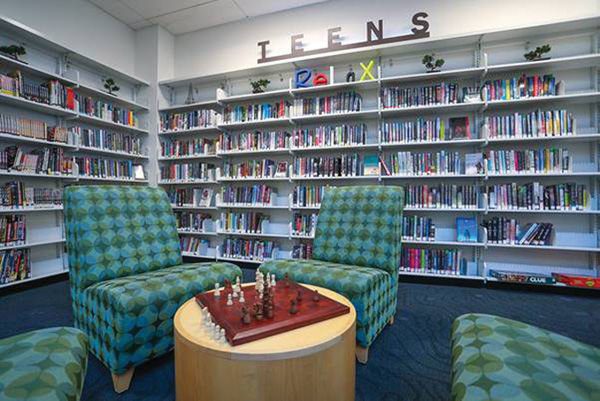Along with physical distancing, hand washing and wearing a face covering, at its best, contact tracing can slow a virus spread by notifying people who may have had an exposure to a positive case. Tracers have been likened to sleuths who cold-call infected people to draw information from them so they can in turn inform others about possible exposure.
Often those who are infected don’t care to talk to the health department—some out of fear of possible deportation, illness or even indifference.
Contact tracers need humility, tact and, according to a contact tracing manager in Los Angeles County, “empathy.”
Amy Trulock is a community outreach librarian at the Malibu Library, a branch of the LA County Library system. As a county employee, Trulock was reassigned as a disaster service worker in March.
“We understand that going in when we’re initially hired,” Trulock said. While some county employees were tasked with food distribution or asked to work the local polls on Nov. 6, the 45-year old’s role changed to manager for one of the county’s contact tracing teams.
“There are a lot of skills librarians bring to the table,” she said. “We already work with the public. We directly speak to a variety of people every day. Our interpersonal skills, reference skills, our customer service—all of that comes into play. We have the basics and the right personalities, we just needed a little extra training.”
About 300 county librarians got that with the LA County Department of Public Health to learn about HIPAA (Health Insurance Portability and Accountability Act), which insures the privacy of health records, plus the other skills to help track and prevent additional cases.
“It’s been a really good match, having library staff doing this,” Trulock said. “We have a lot of empathy and experience with different cultures. We offer a lot of support.”
Most people know they are positive when the first call goes out: “We do a basic interview to check up on them and offer resources on where to get help.”
Contact tracers also collect key information on with whom COVID-19 positive people have been close so calls can be made to those who may have been exposed.
“When we call the contacts, we never disclose where they may have potentially been in contact with someone who is COVID positive. Many times people are just called if they’ve been in a known outbreak location,” Trulock clarified. All information is confidential.
Once communication is made, tracers follow up to see if their contacts become infected and offer instructions on quarantining. Some opt for daily welfare texts.
“We can have some difficult cases—obviously, people are sick. They’re in trauma. They’re in shock,” Trulock said, though the Malibu librarian admitted, “Even when you’re having very difficult conversations with people who are in a very difficult place, many are grateful for the work we’re doing. That makes it all worthwhile.
“There are people sometimes who aren’t sure what resources they have,” she continued. “We’re able to make sure they have a special help line. We get to be an ear for them to let them know they’re not alone in this, especially for those who live by themselves.”
With now more than 18,000 COVID-19-related deaths in LA County, many calls come too late when the exposed person has died. Many of those on Trulock’s team have had to make heartbreaking calls to next of kin who have passed away.
“It can be very difficult, but the thing we have is that we call from a place of empathy. We do our best. We are here to support them.”
“We are just one part of this process as the interview branch. We are the first connection,” Trulock went on. “If we can make those suffering feel supported, heard and not alone, then that also means an increased likelihood that they will use other county services.”
Trulock said the focus is not on tracing where an infection began, but rather halting it in its tracks.
“We can’t prevent people who are already positive, but we can prevent those they’ve been around,” she said. “We work hard to call everyone on the first day we’re given their cases.”
The librarian also reflected on her new tasks.
“While we all can’t be at the library right now, it’s important that we’re still supporting our community,” she said. “I cannot wait for this to be over and to be back providing services to everyone in Malibu. In the meantime, I’m overwhelmed to be given the opportunity to continue to serve.”

